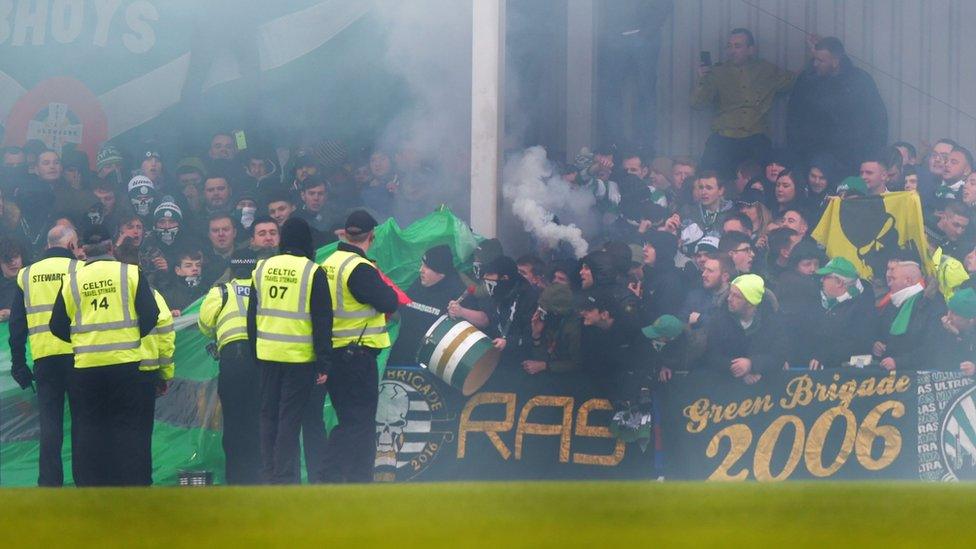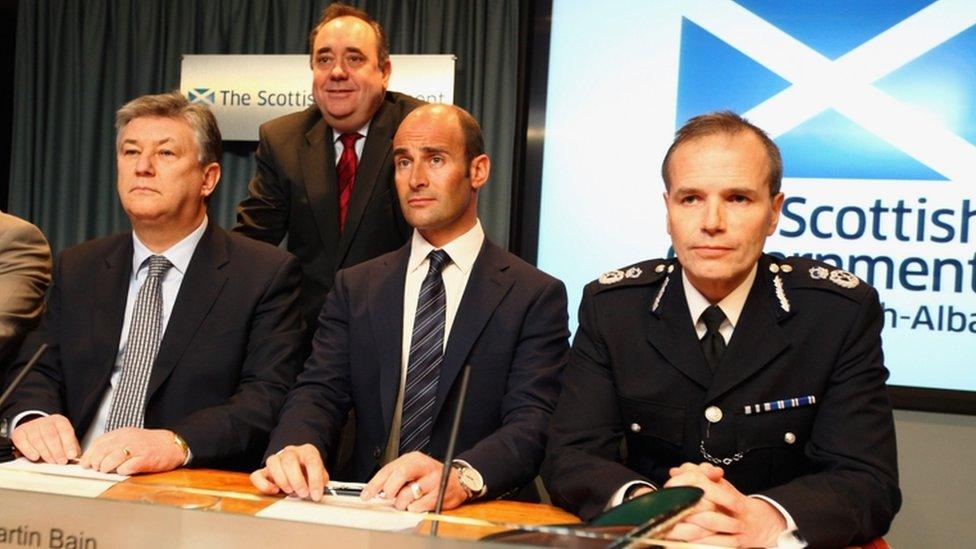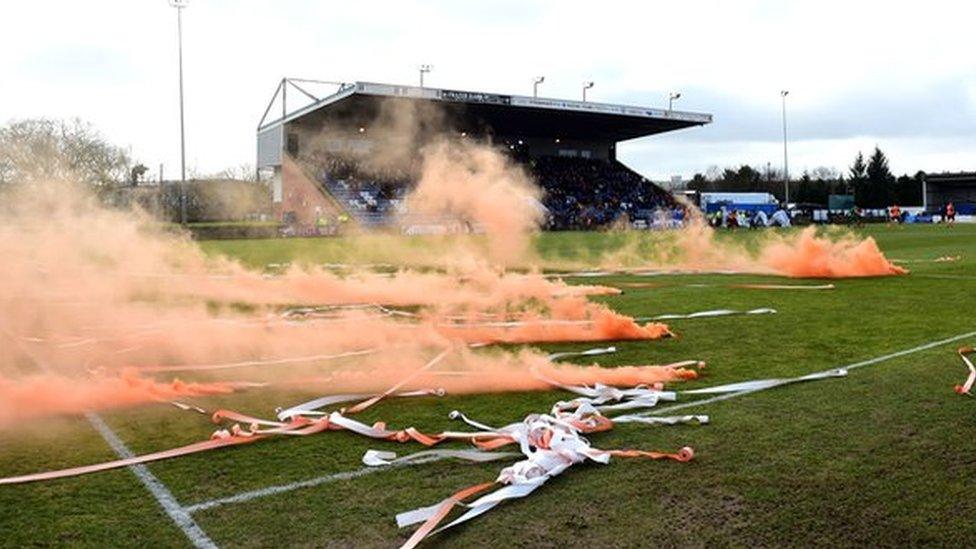Scottish football disorder law convictions 'very small'
- Published

Flares and smoke bombs have become a more common sight in Scottish football grounds in recent years
Only a "very small" number of people have been convicted under controversial football-related offensive behaviour laws, according to Scottish government figures.
The statistics showed there had been 79 convictions last year, compared with 15,000 breach of the peace convictions.
The figures were highlighted by the Scottish Conservatives, who said the law was "unnecessary and unworkable".
The Scottish government said the act had delivered "real improvements".
Scottish Labour also called for the legislation to be scrapped.
The Offensive Behaviour at Football and Threatening Communications Act was introduced in 2012 in an attempt to crack down on sectarianism and other football-related offences.
Critics have argued there was already sufficient legislation in place to deal with disorder at football matches. They have also claimed the new law has unfairly targeted law-abiding football supporters.
And the Fans Against Criminalisation, external campaign group has claimed the legislation has eroded trust between supporters and police, and has failed to tackle bigotry.
But the Scottish government's community safety minister, Paul Wheelhouse, said in January that "hateful and offensive activity has been a declining phenomenon at football in recent seasons since the act was introduced, in terms of the number of charges reported to prosecutors by the police."
There have been a total of 231 convictions since the law was enacted.

The legislation followed a summit hosted by then First Minister Alex Salmond in the the wake of disorder at a Scottish Cup match between Celtic and Rangers in 2011
The Scottish government's Criminal Proceedings in Scotland 2014/15 report, external stated: "The (2012) Act criminalises behaviour which is threatening, hateful or otherwise offensive at a regulated football match including offensive singing or chanting.
"It also criminalises the communication of threats of serious violence and threats intended to incite religious hatred, whether sent through the post or posted on the internet.
"Numbers are very small (79 convictions in 2014-15) in comparison to the crime type, breach of the peace (15,580 convictions) which they fall into, making up around less than 1%."
Scottish Conservative leader Ruth Davidson said her party had warned before the legislation was passed that it was "unnecessary and unworkable".
'Unpopular act'
She added: "Now, even the Scottish government's own document admits - four years on - the number of convictions is 'very small'.
"The Scottish Conservatives are committed to repealing this unpopular act and the SNP should make the same admission.
"It wrongly targets football supporters, the vast majority of whom are law-abiding and civilised, and simply want to enjoy football matches without police breathing down their neck."
Scottish Labour's justice spokeswoman Elaine Murray said her party would scrap the Football Act, and argued that the place to tackle intolerance was in classrooms, community groups and football clubs themselves.
She said: "Sectarianism in Scotland goes far beyond 90 minutes on a Saturday or 140 characters in a tweet, but the SNP government in Edinburgh has never shown an understanding of that.
"No other party in the Scottish Parliament supported the law but it was bulldozed through by an arrogant SNP majority who wanted to be seen to be tackling the problem rather than trying to understand it."
'Real improvements'
A Scottish Government spokeswoman said: "The vast majority of football supporters are well-behaved and simply wish to enjoy the game, and we welcome the figures that show only a small number of people have been convicted under the act.
"Since its introduction, religious crimes are down, race crimes are down and we've seen a decrease in crimes of offensive behaviour at, or in relation to, regulated football matches in Scotland, showing the act has delivered real improvements.
"The act sends out a clear message that Scotland is a country which will not tolerate any form of prejudice, discrimination or hate crime, and it gives police and prosecutors an additional tool to tackle this behaviour."
The spokeswoman also highlighted a YouGov survey from last year which she said found that 80% of those questioned directly supported the act.
- Published31 January 2016
